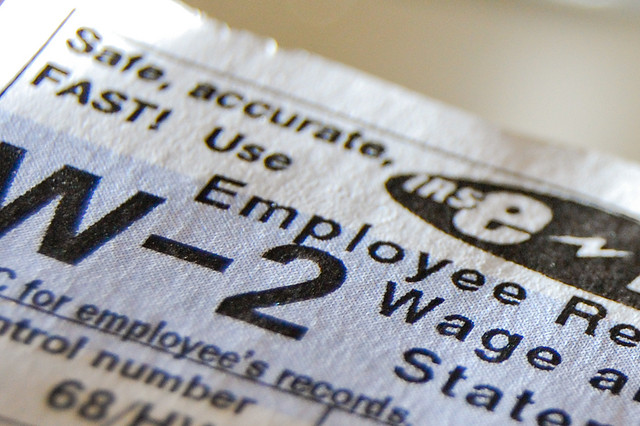Point-Counterpoint: The Minimum Wage (part 1) Read Robert Lerman's minimum wage counterpoint.
Photo by Flickr user josephacote, used under a Creative Commons License (cc-by-sa 2.0)
High unemployment and low wages are urgent problems for American workers. A higher minimum wage is one intervention that might help on both fronts.
While the effects may be small, a higher minimum wage would likely lead to higher employment in the near term, offset by lower employment in the long run. But in the current environment, trading off future employment for jobs today may be a deal worth making.
Wages have grown at very low and decreasing rates recently, partly due to low minimum wages, partly due to high rates of long-term unemployment exerting downward pressure on wages, and partly due to a long-term trend in the structure of the labor market toward more flexible work arrangements and away from unions.
After a dramatic drop in the early 1980s, it was not until 2009 that the federal minimum wage rose back above $7 in today’s dollars. Higher minimum wages generally produced higher net income for low-income workers. A single parent working full-time with two children whose wage increased from $5.15 to $7.25 in 2008 would have had a 40 percent increase in her net income, with a larger tax rebate just about balancing lower benefits and higher payroll taxes.
What about the impact on employment of a minimum-wage increase? Evidence is mixed, with some finding increases, some decreases, and some no effect. The most plausible evidence finds that employment initially rises, then falls, in the wake of a minimum wage hike. In the short run, employers pay more, earn lower profits, and charge higher prices, but over time they tend to shift production toward other factors and decrease their workforce.
A better stimulus would be a targeted temporary spending program, for some new infrastructure or education initiative, that boosts employment in the short run without affecting future employment, except by increasing government borrowing at historically low rates. But such a proposal is a non-starter in a don’t-tax-and-don’t-spend political environment, and not easy to target at low-income workers.
A higher minimum wage is also a more realistic option than a more generous earned income tax credit. Larger tax credits can be better directed at low-income workers (the minimum wage helps some low-wage workers in well-off families though it tends to help workers in poor families more). But credits can actually lower pre-tax wages, and have not increased employment over the past decade or more (during the 1990s, larger tax credits did increase employment, but the gains that were possible seem to have already been realized). Larger tax credits at the end of the year don’t affect a worker’s bottom line as directly as a payroll tax holiday, and they are as politically distant as spending increases.
One feature of a minimum-wage increase we should resist is indexing the minimum wage to inflation. Congress and the states need the flexibility to raise minimum wages at need, so we should not tie their hands with indexing. The effects of a higher minimum wage should fade as inflation erodes its value, providing room for a future policy intervention.
Tune in and subscribe today.
The Urban Institute podcast, Evidence in Action, inspires changemakers to lead with evidence and act with equity. Cohosted by Urban President Sarah Rosen Wartell and Executive Vice President Kimberlyn Leary, every episode features in-depth discussions with experts and leaders on topics ranging from how to advance equity, to designing innovative solutions that achieve community impact, to what it means to practice evidence-based leadership.
